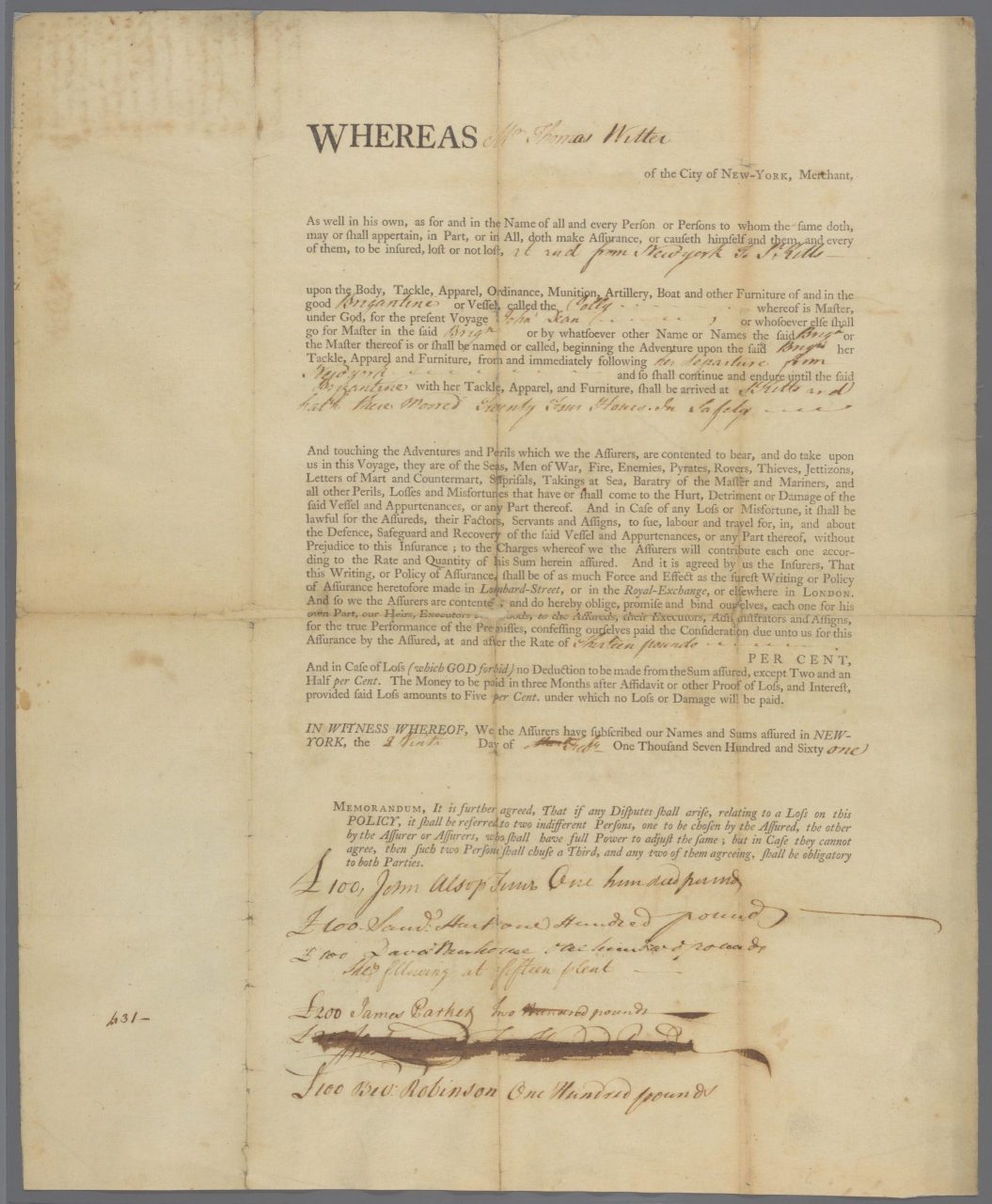Appraisal Clause in 1761 Maritime Policy and Reflections on Fast Resolution of Controversies

Researching the origins of the appraisal clause, I posted about one found in a 1793 property policy in An Appraisal Clause From 1793. I came across the same clause in a 1761 maritime policy that was found in a virtual Harvard library.
The policy bound in New York pre-dates the United States. I kept looking for dollars as the currency and saw that the underwriters had written their interests in pounds. Dollars did not become the currency in the colonies until after the revolution began in 1775.1
One Columbia Law Review article, The Early History of the Contract of Insurance,2 noted an early written form on maritime insurance from Genoa. I wonder if it had an appraisal clause? I am tasking our firm’s brilliant knowledge manager, Ruck DeMinco, with that research.
The terms of the proposed billion-dollar-plus settlement between the classes of victims, defendants, and insurers of Champlain Towers were placed online shortly after a hearing yesterday. We are supposed to hear from the judge about his thoughts later this morning—a Saturday Memorial Day weekend hearing. Many of my thoughts are about why it is taking so long for appraisals of some matters to end controversies of just damage when I was part of a court resolution that many warned me would go on for a decade but is resolving in less than a year from the date of loss.
Can we speed up the expectation of the time to complete appraisals of complex losses and still do justice to the parties?
Thought For The Day
The true currency of life is time, not money, and we’ve all got a limited stock of that.
—Robert Harris
_________________________________________
1 Newman, Eric P. The Early Paper Money of America, 5th edition. Iola, Wisconsin: Krause Publications, 2008.
2 W.S. Holdsworth. The Early History of the Contract of Insurance. 17 Col L. Rev. 85 (1917).



